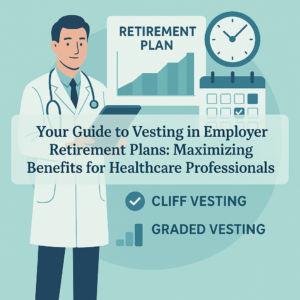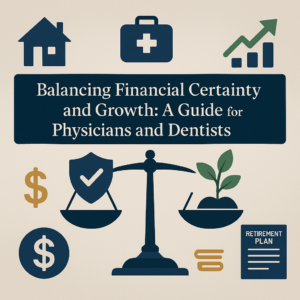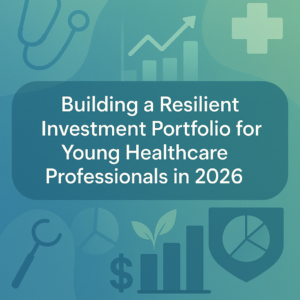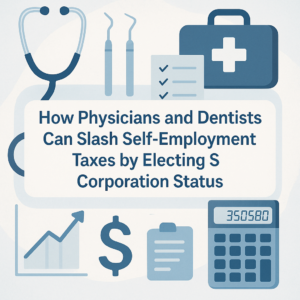Social Security’s Future: Essential Insights for Young Healthcare Professionals
As a young healthcare professional—whether you’re a physician, dentist, pharmacist, physical therapist, or psychologist—planning for your financial future is crucial. Recent developments regarding Social Security’s solvency have significant implications for your retirement planning strategies. Understanding these changes is essential to ensure a secure financial future.
Understanding the Current State of Social Security
The Social Security and Medicare Trustees recently released their annual report, highlighting that the combined Social Security Old-Age and Survivors Insurance (OASI) trust fund and Disability Insurance (DI) trust fund are projected to be depleted by 2034. This is one year earlier than previously estimated. After this depletion date, Social Security will be able to pay only 81% of scheduled benefits from ongoing income.
Factors Contributing to the Depletion
- Social Security Fairness Act: Policy changes have impacted the inflow and outflow of funds.
- Reduced Labor Compensation to GDP Ratio: A smaller proportion of national income comes from labor wages, affecting payroll tax revenues.
- Lower Fertility Rates: Fewer workers are entering the workforce to contribute to Social Security.
Potential Solutions on the Horizon
To address the impending shortfall, several measures are under consideration:
- Increasing Payroll Taxes: A potential 3.65 percentage point increase could bolster the trust fund.
- Reducing Benefits: A possible 22% reduction across the board or a 27% reduction for new beneficiaries.
- Raising the Wage Cap: Increasing the maximum earnings subject to Social Security taxes.
- Adjusting the Retirement Age: Gradually increasing the full retirement age to reflect longer life expectancies.
It’s likely that Congress will implement a combination of these solutions to mitigate the impact on beneficiaries and the economy.
Implications for Young Healthcare Professionals
As a healthcare professional early in your career, these developments have direct implications for your financial planning:
Rethinking Retirement Planning
The uncertainty surrounding Social Security benefits necessitates a proactive approach to retirement planning. Relying solely on Social Security may not provide the financial security you need.
Increased Importance of Personal Savings
With potential reductions in future Social Security benefits, building substantial personal savings becomes more critical. This includes maximizing contributions to retirement accounts such as 401(k)s, IRAs, and other investment vehicles.
Opportunity for Financial Growth
Your earning potential as a healthcare professional places you in a unique position to invest wisely and grow your wealth over time. Diversifying investments can help mitigate risks associated with Social Security’s uncertainties.
Why Early Action Matters
Starting your financial planning early offers several advantages:
- Compounding Interest: The earlier you invest, the more you benefit from compound growth.
- Flexibility: Early planning allows you to adapt to changes in the economic landscape.
- Financial Security: Building a robust financial foundation reduces anxiety about future uncertainties.
The Role of Social Security in Your Retirement Plan
While Social Security may still provide a portion of your retirement income, it’s prudent to consider it as a supplement rather than the cornerstone of your retirement strategy.
Optimizing Social Security Benefits
Understanding how Social Security benefits are calculated and the best time to claim them can enhance the benefits you receive. Delaying benefits can result in higher monthly payments, but personal circumstances and health considerations should guide your decision.
Addressing Common Concerns
It’s natural to feel apprehensive about these changes. Here are answers to some common questions:
Will Social Security Disappear Entirely?
No, Social Security is unlikely to vanish. Even after the projected depletion date, the system is expected to pay out over 75% of benefits from ongoing tax revenue.
Should I Count on Social Security at All?
While it’s wise to prepare for reduced benefits, completely discounting Social Security isn’t necessary. Incorporate it into your planning cautiously, accounting for potential changes.
Conclusion
The future of Social Security presents challenges, but with proactive planning and informed decision-making, you can secure your financial future. As a young healthcare professional, your role extends beyond providing care; it includes taking care of your own well-being and contributing to solutions that benefit society at large.
Start today by assessing your financial plans, seeking professional advice, and staying engaged with developments that affect your retirement. Your future self will thank you.






